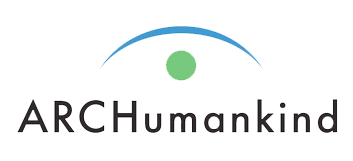S.A.L.T.S. consortium brings together highly reputable academic departments, associations and enterprises in a variety of competences relating to public health, urbanisation, social and political science, hydrologic, agriculture, chemistry and energy, united in the aim of building ‘Strategic Alternatives to Life Threatening Salts’ (S.A.L.T.S). High salts content has a significant connection with: agricultural production in general and irrigation in particular; human health through food and water; environmental quality; urban and agricultural soil erosion; flooding and water storage; energy and models of urbanisation; live styles, health and inclusiveness. S.A.L.T.S. aims at diagnosing problems related to ‘salts’ on a global scale and to list, study and compare the solutions that are being found to combat these and to propose strategic alternatives. In a first stage we aim to update existing data on salts. In a second stage, we aim at researching and developing technological solutions, governance and urbanisation alternatives, and social life models in the fields of water management, agricultural practices, renewable energy, urban planning, health and social policy. At the final stage, we aim publish a set of best practices adapted to a varied number of situations within the full Food-Water-Energy (F-W-E) spectrum.
S.A.L.T.S. encompasses researchers and scientists from a wide range of disciplines including natural sciences, urban planning, engineering, biomedical sciences and social sciences. The members of the consortium are: Fraunhofer Institute for Solar Energy Systems (ISE); the National Institute of Chemistry, Department for Environmental Sciences and Engineering; the Scientific Research Centre of the Slovenian Academy of Sciences and Arts (ZRC SAZU); the Agricultural Institute of Slovenia; the Urban planning institute of the Republic of Slovenia; NETAFIM; the University POLITEHNICA of Bucharest. Power Engineering Faculty; İstanbul University, Department of Civil Engineering.
The outcomes of the research of S.A.L.T.S. would have worldwide impacts, affecting the way food, water and energy are produced, consumed and experienced in everyday life. S.A.L.T.S. helps to find more sustainable ways to secure food, water and energy, adopting interdisciplinary methodologies. The Project addresses key challenges in planning for sustainable urban environments (food, water and energy) and the many synergies and trade-offs between water and energy use and food production. We will analyse how using water to irrigate crops might promote food production but it can also reduce river flows and hydropower potential. Using drip-irrigation techniques saves water but it might result in high energy use. Using solar panels to convert salty water into renewable energy might result in a high energy consumption. S.A.L.T.S. recognizes the existing synergies and aims at balancing these trade-offs in order to jointly ensure water, energy and food security. Moreover, S.A.L.T.S. will address food, water and energy challenges at the global level with a multi-sectoral approach that takes into consideration the multi-sectoral impacts through enhanced dialogue, collaboration and coordination among stakeholders. S.A.L.T.S. also aims at ensuring that co-benefits and trade-offs are considered and that appropriate safeguards are put in place to find strategies to “life threatening salts” in rural and urban contexts.
On 26-27 April 2017, Paulo Casaca represented ARCHumankind at the UN Environment Management Group Nexus Dialogue in Geneva where he spoke about S.A.L.T.S.
The Nexus Dialogue 1 involved discussions among UN officials, member states, the private sector and civil society, to share perspectives on implementation of the SDGs. In particular discussions focused on the environmental dimensions, challenges and opportunities of the integrated implementation of the SDGs and the importance of multi-stakeholder partnerships to strengthen policy coherence and integrated policy development, using the nexus approach.
